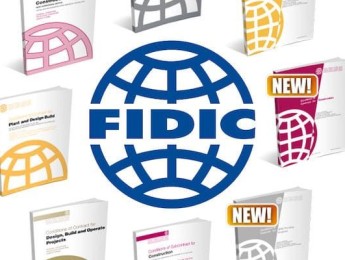This advanced training course provides a comprehensive overview of the EU Artificial Intelligence (AI) Act and the NIST AI Risk Management Framework (AI RMF), two landmark frameworks shaping the global regulatory and governance landscape of artificial intelligence.
Participants will gain deep, practical insights into how to build responsible, transparent, and compliant AI systems. The course explores key regulatory obligations under the EU AI Act, the risk-based approach to AI classification, and the NIST framework’s principles for trustworthy AI — including governance, accountability, risk mitigation, and human oversight.
By the end of the course, participants will be prepared to design, audit, and implement AI governance programs that ensure ethical, legal, and operational compliance across diverse sectors.
By the end of this course, participants will be able to:
- Understand the key provisions, scope, and risk classification system of the EU AI Act.
- Apply the NIST AI RMF principles to manage AI risks across the lifecycle.
- Establish governance and compliance structures for AI systems.
- Develop internal audit and assurance frameworks for AI applications.
- Align AI innovation with legal, ethical, and organisational risk expectations.
This course is ideal for:
- Chief Data, Technology, and Compliance Officers.
- AI Project Managers and Developers.
- Legal, Risk, and Governance Professionals.
- Data Protection Officers and Policy Advisors.
- Consultants and Researchers in AI Ethics, Risk, and Regulation.
The course integrates expert-led discussions, regulatory analysis, and practical exercises. Participants will work on case studies, risk mapping, and governance frameworks using both EU and US approaches to AI regulation.
Day 5 of each course is reserved for a Q&A session, which may occur off-site. For 10-day courses, this also applies to day 10
Section 1: The Global Landscape of AI Governance
- The rise of AI regulation and ethical AI governance.
- Comparing global frameworks: EU AI Act, NIST AI RMF, OECD AI Principles.
- Understanding the balance between innovation and compliance.
- Key challenges: accountability, bias, explainability, and data governance.
Section 2: Understanding the EU AI Act
- Overview and objectives of the EU AI Act.
- Classification of AI systems by risk level (unacceptable, high, limited, minimal).
- Compliance obligations for high-risk AI systems.
- Conformity assessments, CE marking, and post-market monitoring.
- Roles and responsibilities of providers, importers, and users.
- Preparing for enforcement and upcoming implementation phases.
Section 3: The NIST AI Risk Management Framework (AI RMF)
- Overview of NIST’s structure, principles, and functions.
- Core components: Govern, Map, Measure, and Manage.
- Identifying and mitigating risks across the AI lifecycle.
- Ensuring reliability, security, privacy, and fairness.
- Integrating AI RMF with existing risk management and cybersecurity frameworks (ISO 31000, NIST 800-53, ISO/IEC 42001).
Section 4: Building AI Governance and Compliance Programs
- Designing internal AI governance structures and accountability models.
- Policies for ethical AI: transparency, human oversight, and data integrity.
- Developing AI risk registers and control frameworks.
- Documentation and audit trails for regulatory readiness.
- Case studies: corporate AI governance models from leading organisations.
Section 5: Auditing, Assurance, and Future Readiness
- Preparing for AI audits and compliance reporting.
- The role of third-party audits and conformity assessments.
- Interaction between AI Act, GDPR, and cybersecurity standards.
- Managing cross-border compliance for multinational AI operations.
- The future of AI regulation — global harmonisation and sector-specific standards.
Upon successful completion of this training course, delegates will be awarded a Holistique Training Certificate of Completion. For those who attend and complete the online training course, a Holistique Training e-Certificate will be provided.
Holistique Training Certificates are accredited by the British Accreditation Council (BAC) and The CPD Certification Service (CPD), and are certified under ISO 9001, ISO 21001, and ISO 29993 standards.
CPD credits for this course are granted by our Certificates and will be reflected on the Holistique Training Certificate of Completion. In accordance with the standards of The CPD Certification Service, one CPD credit is awarded per hour of course attendance. A maximum of 50 CPD credits can be claimed for any single course we currently offer.
- Course Code PI2-140
- Course Format Classroom, Online,
- Duration 5 days













